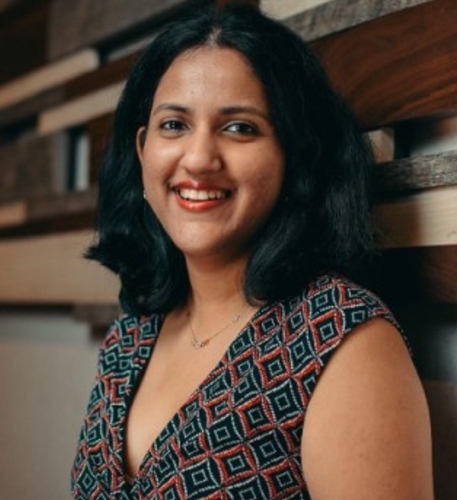We continue to celebrate Disability Pride month at PYD with articles that showcase individuals who embrace their disability and empower others to do the same.
Mentors have been proven to increase confidence, skills, and independence of young people with disabilities. Talking with an individual that has found success despite facing similar obstacles due to a disability can be invaluable to a young person with a disability.
Meena Das has been a mentor for three years and is a member of the National Disability Mentoring Coalition’s Susan M. Daniels Disability Mentoring Hall of Fame Class of 2020. She understands the importance of mentors in bolstering self-esteem and pride in who you are.
“I have a severe stutter, so it takes me a while to speak. When I grew up, I did not have a lot of self- confidence and have experienced bullying due to the way I spoke. My childhood was very sheltered, and I had low self-confidence. When I started college and found mentors who believed in my potential, it really impacted me to see the positive.”
Meena mentors others so they can benefit from the same experience she had with a mentor. “When I was trying to navigate my college and speech disability, my mentor helped me understand the accommodation process and how to advocate for myself,” she said. “If I didn’t have them, I don’t think I would’ve had a successful college career. The main reason for me [to be a mentor] is to give back what I got and help young students who have disabilities learn about their rights and how to advocate for themselves. It is a great feeling and gives me a unique sense of purpose.”
Being a mentor has benefited Meena as well. “It has made me more confident to share my knowledge and advice with someone,” she said. “It feels good to have made a difference and to see that you made a small but positive change in someone’s life. It is a very satisfying experience.”
While in college, Meena also sought out organizations for students with disabilities. She found a group called Access Computing that was specifically for people with disabilities in the computing field. “I met so many students like me who were navigating computer science majors as a person with a disability,” Meena said. “This experience also fueled my interest to pursue research in making computer science education more accessible.” She also founded her own group called Working with Disabilities for individuals with disabilities to discuss life and employment.
Joining communities – whether in person or online – facing similar challenges provided guidance for Meena and role models who were proud of their disability. “One of the things I really brooded over in my childhood was to find ways to cure my stutter,” she said. “Now, I focus on self-acceptance which is so much more important. This has just made me happier and more successful, and I encourage every young person with a disability to do the same.”
Mentoring is at the core of PYD’s goal to create more inclusion opportunities for individuals with disabilities. Relationships and skills built through mentoring empower youth to lead an independent life with gainful employment and meaningful social interactions.
Jillian Howland, an intern with the National Disability Mentoring Coalition, contributed to this article.

